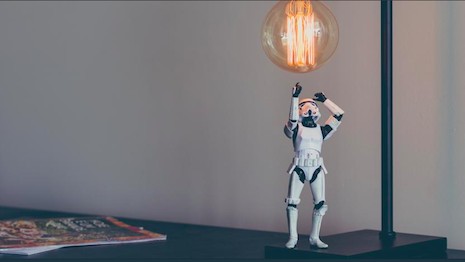 Artificial intelligence and machine learning are increasingly important aids in marketing and retailing decision-making. Image credit: Pattern89
Artificial intelligence and machine learning are increasingly important aids in marketing and retailing decision-making. Image credit: Pattern89
By R. J. Talyor
When you think of the word “luxury,” what immediately comes to mind? Fine jewelry? Upscale hotel rooms? Haute couture?
Up until now, luxury has been defined by a “more is more” mantra. But what exactly we want more of has changed. Now, the ultimate luxury is time.
Busy-ness has defined the 21st century and luxury brands are certainly facing this challenge head-on.
Fast fashion, counterfeits and mass luxury draw dollars away from luxury, while endless meetings, longer to-do lists and mobile devices dull our attention.
Meanwhile well-funded competitors emerge daily to compete with legacy luxury customers. With more competition and less time, how can luxury brands learn to differentiate? That is where artificial intelligence (AI) can help.
According to Adobe, 47 percent of digitally mature brands have an AI strategy. But what about the other 53 percent? How are luxury brands using AI to build the next chapter of their legacy?
AI is a transformative part of the key tool in a luxury brand’s toolbox for three key reasons:
AI automates time-consuming repetitive tasks
The best way to save time with AI is to look for the places where teams are spending hours on manual calculation.
Whether it is in pivot tables, crunching numbers in Facebook Ads Manager or combining multiple spreadsheets into a single source of truth, AI can help. By finding the biggest time suck first, the impact can be felt faster.
Using AI lets humans stick to what they are good at
While AI tries to be creative, only humans can create the next Colin Kapernick Nike campaign or fashion week sensation.
By delegating things such as number crunching, ad budget optimization or even email subject line testing, humans can stay busy doing what they do best: creating the next big idea.
Sometimes AI really does know best
There are some things robots are just better at doing. A really big one is looking at data and making cold, unemotional decisions.
Robots can find ad sets that underperform, help you optimize your ad spend and tell you which headline will perform best out of the 10 options you came up with. But AI will not do the best job of coming up with the headline in the first place.
Notice a theme emerging here? AI has some serious strengths. Strengths that make life better for humans. So why are so many luxury brands hesitant to adopt AI?
The answer is short, but not simple: fear.
Many luxury brands are afraid of a brand defined by machines. Others are unwilling to let go of busy-ness.
These fears keep luxury brands locked in doing the same thing we were doing last week or last month because it is safe and predictable.
But, in the world of luxury retail, when was the last time you said “that safe, predictable brand is killing it?”
ARE YOU going to be the luxury marketer who masters artificial intelligence to reclaim the only true luxury: time?
 R.J. Talyor is founder/CEO of Pattern89
R.J. Talyor is founder/CEO of Pattern89
R.J. Talyor is founder/CEO of Pattern89, Indianapolis, IN. Reach him at rj@pattern89.com.

